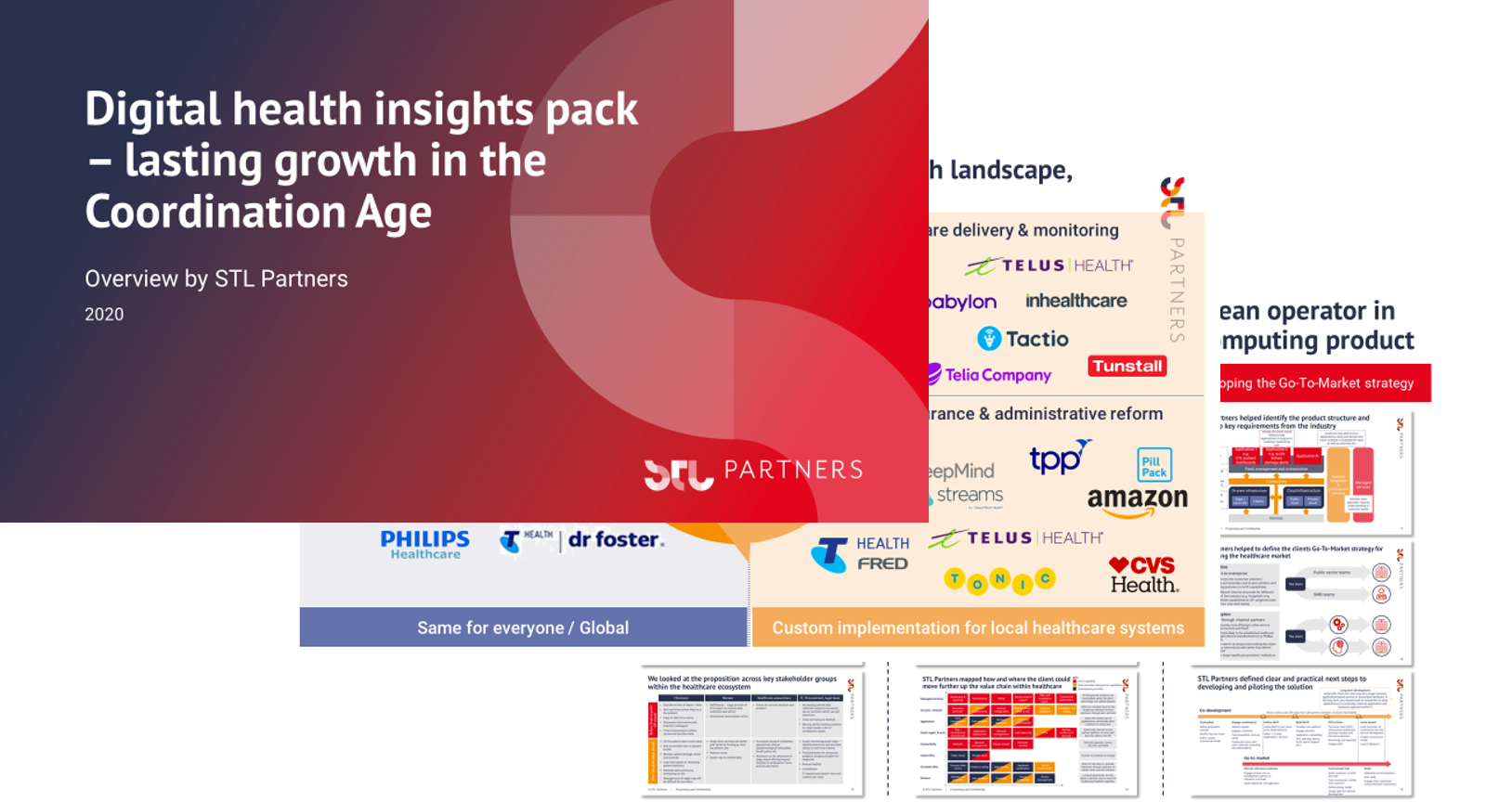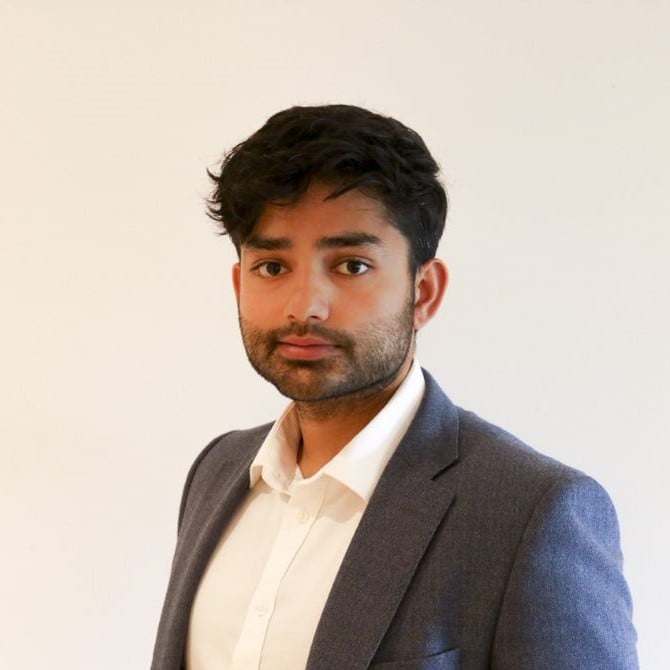10 Diagnostic and Triage companies innovating in digital health
As the healthcare industry transforms to become more digital and automated, diagnostics and triage will form foundational pillars of next generation care. In the past, STL Partners has highlighted the importance of these elements to the digital health value chain, emphasising the inefficiencies which currently plague our systems and the savings made possible by digitisation of both medical streams. If you would like to find out more about these topics in general, please read this article from our research team.
Below are a few companies which are at the forefront of using technology to improve diagnostics and triage. These topics have developed from mere theories to commercially deployed and successful solutions:
The first group of companies we profile is focused on improving access to healthcare services.
Mendelian for rare disease detection
Mendelian is a UK-based company that helps doctors find undiagnosed patients early. The company “focuses on rare and hard to diagnose diseases which affect 1 in 17 people worldwide” and on average take five years to diagnose.
Its solution, MendelScan, is a machine learning tool that captures disease features from electronic health records across a patient population and matches the patients to published diagnostic criteria for hundreds of rare diseases. A MendelScan report with a list of suspected rare diseases is then sent to the healthcare provider for further action.
In 2020, the company announced a partnership with Modality NHS Partnership to roll out the program throughout Modality’s extensive GP practice network, supporting more than 450,000 people across 45 GP practices.
PingAn Good Doctor to help address the shortage of doctors in China
China has 1.8 practising doctors per 1,000 citizens, compared to 2.6 for the United States and 4.3 for Sweden. One company that is trying to address the doctor shortage problem in China is PingAn Good Doctor- a leading online healthcare service platform in the country. As of the end of June 2020, the number of active users had surpassed 67 million, making it the largest mobile medical application in China based on user coverage. The company has developed an AI system that can diagnose around 3000 common diseases and treatment methods. Moreover, they claim to have achieved 99.6% accuracy rate for the company’s smart triage online consultation system.
Feebris for diagnosing child pneumonia which kills 1mln children because of late diagnosis
Pneumonia is the number one cause of death for children under the age of five globally. Feebris has taken up the challenge of saving around a million children each year who die of pneumonia because they are either undiagnosed or diagnosed too late. The company was set up “to develop ethical AI that improves access to early diagnosis” for children across the globe.
The Feebris platform connects to tools like a digital stethoscope to identify pathological sounds in the lungs using machine learning algorithms. Combining these with other essential symptoms, Feebris identifies pneumonia and determines severity.
The second group of companies we profile is focused on cutting unnecessary healthcare costs.
Healthy.io for remote diagnostics
Healthy.io’s mission is to “transform the smartphone camera into a medical device to deliver healthcare at the speed of life”. The company offers Standardised Digital Wound Management Services that help clinicians make better care decisions using the smartphone camera to accurately capture wounds and analyse their progress. The camera captures the wound size and tracks healing over time from a centralised portal. The wound data can then be shared with the care team and used for reimbursement purposes.
Qure.ai to help with diagnostics
Qure.ai uses AI algorithms for medical imaging to identify and localise abnormalities on X-rays, MRI and CT scans. qXR, one of the company’s products aimed at automatic chest XR interpretation, was trained with over a million curated X-rays and radiology reports, making it hardware-agnostic and robust to variations in X-ray quality. For suspected Covid-19 cases, the tool also interprets X-rays to help doctors classify patients as high-, medium- or low-risk and prioritise testing accordingly. Qure.ai has recently partnered with AstraZeneca to improve early-stage diagnosis of lung cancer and reduce mortality rate in Latin America, Asia and Middle East & Africa regions. Hence, qure.ai is not only set to decrease healthcare costs by introducing efficient ways of diagnosis but to also democratise healthcare by bringing quality diagnostics to underserved populations.
Odin Vision to help treat colon cancer
Odin Vision is an award-winning AI company founded by a team of eminent clinicians and AI experts with the mission to create the next generation of AI-enabled applications for endoscopy. Detecting and diagnosing polyps during colonoscopy procedures is challenging for doctors and studies have shown up to 25% of polyps can be missed. Increasing the detection/diagnosis performance can lead to improved patient outcomes, as a 1% increase in Adenoma Detection Rate (ADR) leads to a 3% reduction in cancer incidents. The technology developed by Odin Vision enables doctors to better detect and characterize diseases during colonoscopy procedures. In a partnership with the NHS, the company’s AI technology will be installed into selected hospitals across the UK to evaluate its impact on patient outcomes and the cost benefits to the NHS.
Doctorlink to help with triage
Doctorlink is the leading provider of online triage to the NHS & insurers. The online triage system enables health providers to efficiently manage demand by directing people to the most appropriate care pathway, including self-help, pharmacy and urgent care. It transforms how doctors manage resources, saving money in workforce efficiencies and reducing administrative burden. Doctorlink assesses the patients’ symptoms online by asking a series of medical questions based on an algorithm built by doctors and tech innovators. According to Doctorlink, the company’s algorithms cover 95% of conditions and provide the most accurate symptom assessment on the market. The company estimates that the tool has the potential to free up 99 million GP appointments and save approximately 3 billion pounds.
PocDoc
PocDoc is a digital health provider which hopes to leverage the ubiquity of smartphones, turning them into personal diagnostic devices able to detect a range of major diseases from a pinprick of blood. Their primary focus is on cardiovascular issues and diabetes.
Crucially, the platform is also able to integrate third-party rapid tests onto it and translate the results in the digital environment, providing follow-on guidance and action. Through a partnership with BioSure they were able to utilise this capability to aid the COVID-19 effort, integrating the rapid tests into their app. As a result, they were also able to provide individual, demographic data was also made available, augmenting the lessons that could be taken and used against COVID.
Corti.ai
Corti provides a voice-based AI platform called Audia, enabling physicians to analyse patient interviews and provide more accurate diagnoses during a medical consultation. Founded in Denmark in 2016, the platform works with video, audio, and text, allowing medical practices to plug into their existing systems in less than a day.
Corti assert that Audia can ensure medical advice is offered 25% faster and with 50% fewer errors, ensuring that patients are triaged in the most efficient and effective manner. In 2020 the company was awarded the Future Unicorn award by the trade unions of the EU who voted it the most likely unicorn company in Europe.
Behold.ai
Behold.ai’s algorithmic technology takes standard chest x-ray information and runs it through a deep-learning system which then detects any abnormalities in the data. Their trademarked red dot algorithm has been trained on over 30,000 CXRs where there are abnormalities linked to lung cancer. The service can supplement the practice of radiologists as they look to provide accurate and rapid diagnoses to their patients.
They have recently been granted government funding to run two clinical trials of their red dot algorithm, allowing them to increase the accuracy of the system as well as adapting it for practical use. It was 1 of 5 organisations to have won this Artificial Intelligence in Health and Care award.
Digitalisation of diagnostics and triage has the potential to provide healthcare professionals with tools to augment their ability to provide efficient and effective care. Automating administrative tasks both reduces the workload on individuals, allowing them to focus on providing adequate care, as well as limiting errors in systems which can lead to fatal consequences. STL Partners forecasts that the digitisation of this area will bring significant cost savings to the industry globally, providing even more value to healthcare that the shift towards telehealth.
Cost savings by application area as a percentage of total annual cost savings – Europe & Central Asia

We estimate that in Europe for example, digital tools for diagnostics and triage will account for >40% of total cost savings derived from digital health applications, deriving over $20bn of savings for the industry in 2030. For operators looking to be successful in the healthcare space, solutions and partners which can address the challenges associated with diagnostics and triage may provide a strong opportunity to deliver value to customers.
Author: Tim Otto, Consultant at STL Partners, specialising in digital health.
Digital health insights pack
This 24-page document will provide you with a summary of insights from our healthcare research and consulting work:
- Key trends in the healthcare industry
- The role for telecoms: applications and business models
- Strategies for success: where to start
- How STL Partners can support you
Request the free digital health insights pack by clicking on button below:
![]()
Get in touch with our Digital Health Leads




